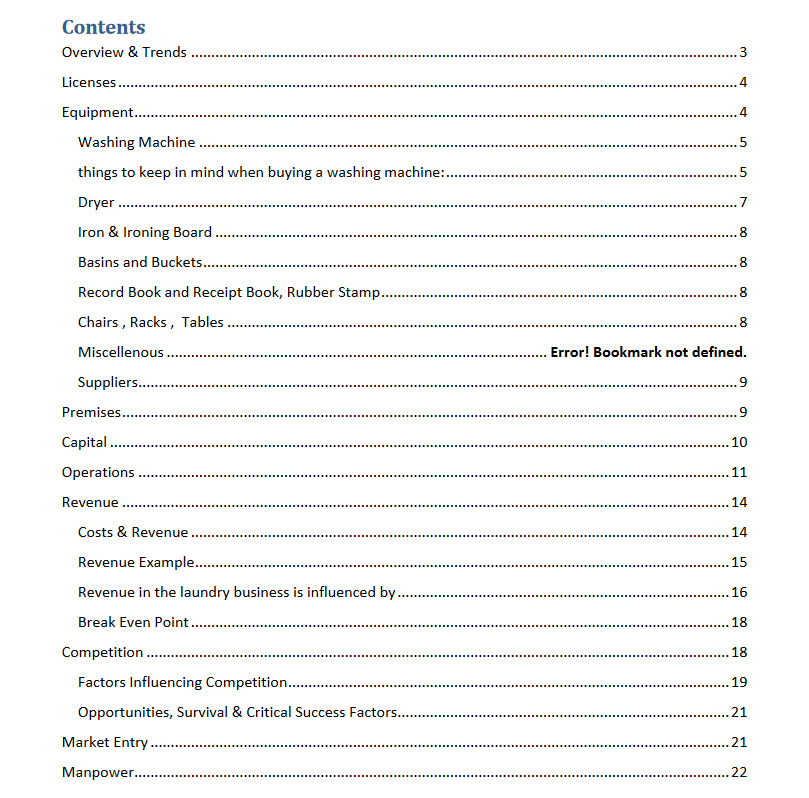Laundry Business Plan
Laundry Business Plan

Laundry Business Plan Overview
This Laundry Business Plan refers to the business of “wet “washing of clothes. This is as opposed to dry cleaning. The target customers are individuals, households, hotels, lodgings and other small and midsized corporate customers.
In urban areas consumers wash their clothes themselves, hire permanent salaried staff often in form of house helps, use casual workers commonly known as mama nguos or go for commercial washing services commonly known as laundries which are the focus of this Laundry Business Plan.
Although there are Dry Cleaners which also serve as Laundries the focus of this guide are laundries which do not have dry cleaning service. We will cover Dry Cleaners in a Business Plan of its own.
For many years laundry business used to be fully a manual affair. Clothes were washed by hand, dried out in the sun, ironed and then picked by the customer after three days. This kind of laundry shop still exists in some estates.
However since the mid 2000 there has been adaptation of machines. This started as a way to compete and differentiate; machines could save on labour costs, dry clothes faster and somehow give a sense of professionalism.
Then as laundry machines became more available, affordable and pushed to the mainstream through supermarkets and publicity by the household items companies more of the laundry businesses acquired them. Today there is a mix of manual and ‘semi automated’ laundries which use machines.
Another change in the last four or so years, has been the rise of semi professional house cleaning and laundry services. Take this to be better organized mama nguos ; branded , offering a cleaning package, more thorough and not necessarily middle aged and old women but also young ones in uniform.
These services are found within estates, especially in Nairobi’s mid income estates. The concept has gradually been catching though at rate lower than expected. Related to this are the slightly advanced forms of such services; these pick clothes, wash, iron and deliver. They could have cars, motorcycles and permanent premises. They also cover a relatively wider area and put more effort in marketing. Some focus on corporate clients only while others are open to retail customers too.
Since 2015 there has been development of local internet platforms, which essentially try to make the process of having your clothes washed easier and more efficient. These include Dobi and Kisafi.
Dobi launched first but is not yet to gain much traction. Their business model is like being the “uber of laundry”. They find people with spare and idle capacity in their washing machines and outsource to them. The latter soft launched in March 2016 and has been investing quite a bit in marketing especially on the internet. Sometime in April they were offering free one week washing. Presently Kisafi covers Westlands, Kilimani, Kileleshwa, Lavington, CBD and environs.
A notable difference is their business model where rather than charge per piece or kilograms as other laundries do they bill by an “all you can fit bag.”
To break even these services will need to attract a significant number of consumers. Their target market is also limited to the better organized and accessible estates where it’s easy to give directions and move door to door picking or dropping laundry. With the rise of gated communities, and if they are able to attract volumes while keeping the prices affordable then they could be a threat to the traditional laundry services in mid and high income areas. But it will take more effort and time to penetrate the lower and more ‘disorganized’ mid income areas. Think of Nairobi’s Eastlands, an estate like Umoja.
Download Laundry Business Plan / guide here